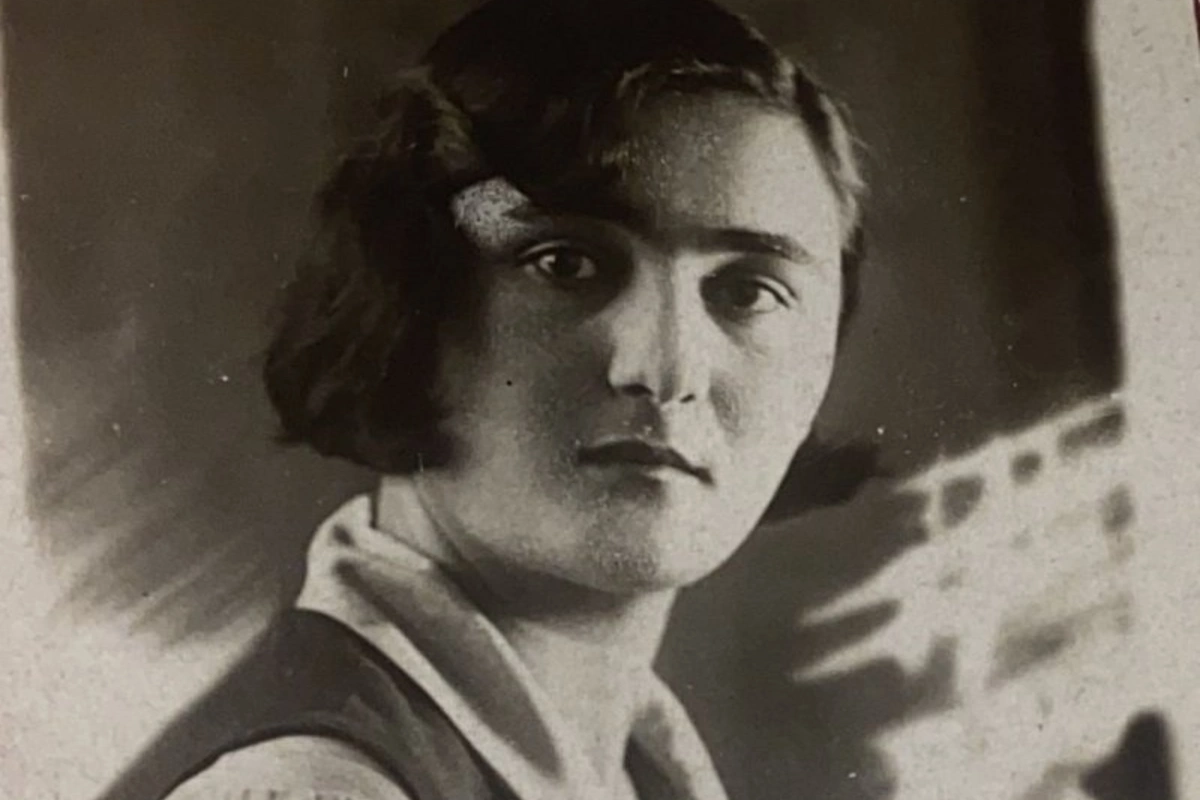
By Maryam Bagirova
The сarefree years of childhood
Baku city… Novkhani settlement of Absheron…Every summer, three children - three friends-would swim freely in the calm waters of the Caspian Sea: one was Mehdi Huseynzadeh, the future Hero of the Soviet Union; another was the brave-hearted Anvar Nuriyev; and the third was Anvar’s sister, Zahra Nuriyeva - known for her beauty, and destined to become the pillar of her family. They swam together, savoring the carefree moments of childhood. Unaware of what the future held, they basked in the innocence and joy of those early years, never imagining that one day, their life paths would diverge - some would face harsh trials, others would walk forward with the hopes gifted to them by fate.
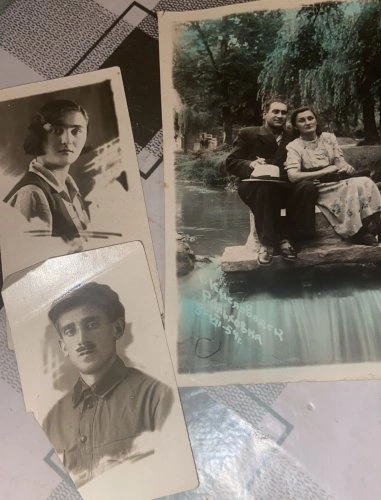
* * * * * *
A fate left incomplete: Qasim Khalig oglu Kazimov
Zahra and Qasim, who knew each other well as relatives, built a pure and loving family through mutual affection. Their love gave birth to a daughter named Tamilla. Qasim Kazimov, a zootechnician-agronomist, was not only an expert in soil and livestock but also a true intellectual who understood the soul of books. In that era, Qasim stood out with his broad worldview and deep reading. When he read the French writer Ferdinand Duchêne’s novel “Tamilla”, he didn’t just witness a piece of literature, but a destiny that fought for freedom and courage. The rebellious spirit of Tamilla in the novel, trapped within the rigid customs of the Kabil tribe, her deep bravery and yearning for freedom, shook Qasim’s heart. Influenced by this emotional jolt, he named his newborn daughter Tamilla. This name became for him not just a tribute to a literary heroine, but a symbol of free thought, unbreakable will, and feminine courage. There was an unshakable love between Zahra and her husband Qasim. And the brightest witness of that love was their daughter-little Tamilla. For three-year-old Tamilla, every evening when her father returned home and carried her on his shoulders, when he stretched out his arms and called “come, come,” when he brought her live lambs instead of toys just to make her smile-these moments turned into pure and irreplaceable memories.
But those happy days did not last long. In 1941, Qasim was called to war. Zahra was left alone with their only child and, after a while, contracted typhus. Despite all these hardships, what kept her hopeful were Qasim’s letters from the front. In each letter, he asked about his daughter, and with words filled with love and hope, expressed his longing for his family. However, in the autumn of 1942, the letters stopped… And soon after, a “black letter” arrived at their home. Qasim had gone missing. Neither Zahra nor their little four-year-old Tamilla ever got enough of Qasim’s presence - his departure froze time, love remained unfinished, and memories became eternal. Despite everything, Zahra became both mother and father to her daughter; on cold nights, they shared a single slice of bread, and even the tiniest crumbs turned into whispered prayers filled with hope. Sadly, Qasim Khalig oglu Kazimov doesn’t even have a grave… Yet every year on May 9, his family, grandchildren, and all who loved him pray for his soul and remember his name with deep respect.
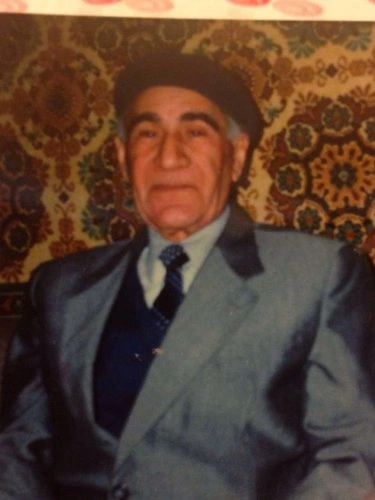
* * * * * *
The sun that rose again
Years of hardship passed one after another. Life had taken much from Zahra - her husband, her dreams for the future… Yet it also granted her a second chance at life.
In early 1947, Zahra met a man named Isfandiyar during a court hearing related to her workplace. He was the chief engineer at a construction materials plant. From the very first moment he saw Zahra, Isfandiyar was overwhelmed by a powerful love - as if she were the only woman in the world. Everything else - people, sounds, colors - suddenly became meaningless and dull. From that moment on, he spent years trying to win her heart. He tried to get close to her, to talk to her at every opportunity. But Zahra firmly kept her distance. She would say, “I’ve dedicated my life only to my daughter.” Zahra thought like a true mother. Her only priority was to raise her daughter and ensure she had a strong, free future. No matter how persistent Isfandiyar was, Zahra valued this maternal responsibility above all and refused him with determination. Yet Isfandiyar could not think of any other woman. From the moment he saw Zahra, he wanted to build a family with her. Despite his efforts, Zahra did not agree. But he never gave up. With patience and persistence, he drew closer each day. This love - this patience - gradually began to melt the ice in Zahra’s heart. Zahra did not make the decision alone. She considered the opinions of both her own family and her late husband’s relatives.Isfandiyar met with them, spoke about himself, and won their a dmiration. Only after receiving their approval did Zahra begin to accept his love. When Isfandiyar shared the news with his own family, they initially reacted with strong disapproval: “You’re a bachelor; it’s not appropriate to marry a widow,” they said. But he listened to no one. He married Zahra and laid the foundation for a new family. Later, even his relatives who had objected grew fond of Zahra. Her talents amazed everyone. Zahra possessed exceptional skill in embroidery and sewing. She created beautiful dresses, handbags, coats, and tablecloths - everything she touched became art. Her work wasn’t just basic sewing. With every stitch and touch, she turned simple fabrics into works of art by decorating them with floral patterns and intricate designs. Her artistry wasn’t limited to needlework - she also delighted her family with delicious dishes, preserves, and sweets. Every detail reflected refinement and mastery, each task shaped by love and dedication. She wasn’t just a housewife - she was the pillar of her family, a true master of art and cuisine.
Zahra and Isfandiyar traveled together every year, turning their trips into shared memories. They were not just a family; they symbolized an intellectual lifestyle and a deep connection to culture. Cinema, theater, exhibitions, concerts -they attended every cultural event held in the city. Their home received 7 - newspapers daily - in both Azerbaijani and Russian. Dozens of magazines filled their table each month. They preferred to live every moment of life together. Even in hospital rooms, they stayed side by side. Isfandiyar only traveled alone when work required it. Their love - their unity - ran so deep that it became a legend among family and friends. Both Zahra’s and Isfandiyar’s families admired their bond, envied their devotion. Their love had moved beyond the boundaries of a typical relationship - it had become a life philosophy, the most perfect example of love and loyalty. Fate wrote Zahra’s life in such a way that war came to her in two forms: One - as Qasim, who went missing for his country. The other - as Isfandiyar, who crossed that stormy path and became the pillar of her new life. And it was as if Zahra had been chosen by the Divine for this mission.
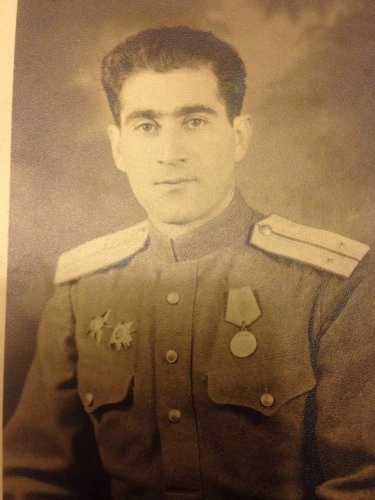
* * * * * *
The life journey of Isfandiyar Alakbar oglu Akhundov
Isfandiyar Akhundov’s life is more than just the biography of a military officer; it is the silent story of a hero whose heart left a mark through the most difficult trials of his era. Born in 1913 in the village of Agamalioglu, Goranboy region, Isfandiyar began his education there, studying under his own brother, Mashdi teacher. In 1938, he graduated from the Mountain Mining Faculty of the Transcaucasian Mountain-Metallurgical Institute in Tbilisi. He worked as an engineer and later as a mine director in the Donbas region. In the village of Shakhtakhti, Nakhchivan ASSR, he served as the director of a mountain quarry and led the construction materials group of the USSR Industrial Council. Every new role brought not only professional responsibility but also a mission to serve humanity. When the war call came, Isfandiyar transitioned to an artillery commander role, joining the frontlines of victory - the path to Berlin. The battles he fought alongside the 842nd Regiment became the brightest expression of his courage and patriotism. In 1946, decorated with medals and honors, he was discharged with the rank of officer and went on to serve his country intellectually, this time as an inspector for the Central Committee. Isfandiyar served as an artilleryman in the war - a hero whose firepower silenced enemies at the front, defending his homeland and writing history with each shot. Fearless, he risked his life to save countless soldiers.
He was destined to become a “Hero of the Soviet Union,” but never received the title… because the hand meant to sign that list belonged to an Armenian. Once again, that familiar trait - an Armenian official cast a shadow on his rights, obstructing what should have been. But in the hearts of his people, Isfandiyar had long been awarded the title “Hero.” True heroes live not through medals, but through memory. His battlefield bravery, his willingness to give everything, and his saving of hundreds of lives made it unquestionable that he deserved the highest title. But alas, as if enemy bullets at the front weren’t enough, the venom of betrayal from behind the lines stung just as hard.
Isfandiyar’s war was not just marked by trenches and gunpowder, but also the voice of his heart. Even in trenches breathing death, he would pull out his notebook and record the moments he lived. During the briefest lulls in battle, he wrote. His journal was not merely writing - it was the inner world of a soldier, a silent cry of resistance against despair, and a message to future generations. Perhaps that little notebook preserved his soul - for in writing, he survived; in writing, he endured. Today, that diary is a quiet yet sincere witness to our history.
From Isfandiyar Akhundov’s diary:“May 22, 1945. We hear all sorts of news. Some say we’ll return home, others say we’ll stay here for a long time. Nothing is certain yet. We’re strengthening the camp.” The scars of days spent in battlefields linger not only in trenches but in the deepest layers of the soul. Some emotions that can’t be spoken aloud only fit into the trembling lines of a soldier’s pen. Isfandiyar would often say: “I am not afraid of death, for I have seen war. Whatever life God has given me after that - it is a gift.” This meaningful life path shows that for Isfandiyar, the greatest medals were not those worn on his chest, but those earned by teaching others, enduring trials, and upholding the sacred values of family and love.
Akhundov stood out with his modern outlook, refined culture, and elegant appearance. He embodied European elegance: regardless of the season, he wore a classic hat, a carefully chosen tie pinned precisely, a pressed suit, and a neatly shaved face. His signature style was not just about clothing - it reflected his mindset. Though Isfandiyar and Zahra had no biological children together, he embraced Zahra’s daughter as his own, and her grandchildren with the compassion of a grandfather. He never distinguished between blood ties and emotional bonds - he loved them as if they were his own. This love was not born of genetics but of soul - an eternal legacy. The life he built with Zahra, full of love and respect, fills the heart with pride and the eyes with tears.
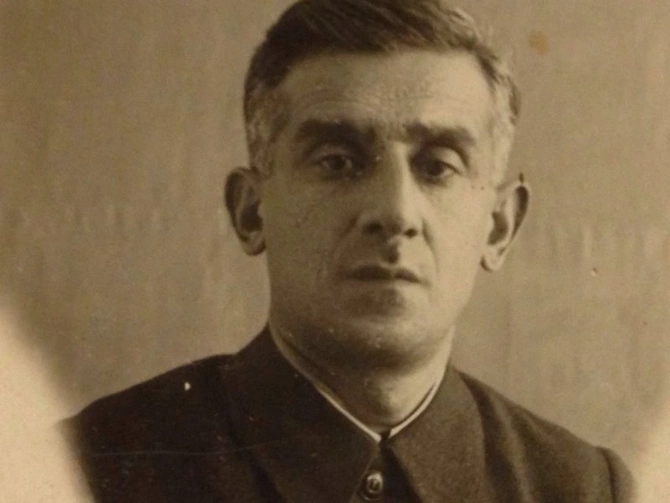
* * * * * *
Mehdi Huseynzadeh and Anvar Nuriyev: From childhood to the trenches
In 1941, Zahra’s brother Anvar Nuriyev and his childhood friend Mehdi Huseynzadeh also went to the front. Anvar fought bravely, fulfilling his love for his homeland and his duty, and was awarded various medals and honors. His medals and awards symbolize his heroism and professional service during the war. Deeply devoted to his homeland, family, and friends, Anvar fulfilled his duty with the courage he showed in the face of his country. Once, in the same neighborhood, the sound of laughter echoed above the same stones, where Anvar and Mehdi shared a piece of bread and a dream… Years passed, and battlefields replaced playgrounds. Now their footsteps blend with the sound of the earth, fighting side by side not in the trenches, but heart to heart. They fight to preserve the purity of childhood, the enthusiasm of youth, and human dignity. They are not only soldiers - they are the guardians of the past and the future. They are the purest, most sincere symbols of courage. Mehdi Hanifa oglu Huseynzadeh (Mikhailo) was a partisan and a Hero of the Soviet Union during World War II. As the leader of a reconnaissance and sabotage group, he was known for his courage and strategic skills on the battlefield. In 1944, Mikhailo
lost his life, but his bravery and love for his homeland have remained etched in memory forever. His friendship with Anvar Nuriyev was a reflection of their respect and support for one another. This friendship was a bond in which both understood and supported each other, facing the hardships of life together. Both Anvar Nuriyev and Mehdi Huseynzadeh are highly regarded by society as symbols of their struggles against war and adversity, and their friendship has been an inspiration to many.
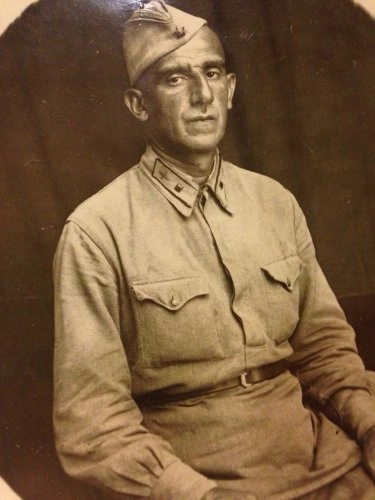
* * * * * *
Tamilla Kazımova, daughter of Qasim, and her children
Zahra’s daughter, Tamilla, grows up carrying the legacy of her mother’s bravery and dignified life, and she becomes a skilled architect. She reaches adulthood, marries, and builds a family. This strong woman, who grew up under the shadow of war, eventually becomes the mother of three children: Gular, Elkhan, and Aygun. In the household she established, along with the pains of the past, the hope of the future also thrives - these names are the unceasing voice of a generation, the continuation written in history. The home that Tamilla built is a memory that carries Zahra’s traces while also shining light toward the future.
Memories of Tamilla’s children: “Every year on April 25, we would celebrate two birthdays together at our house - our mother’s and our father’s. This was no coincidence, it was as though fate had united them on the same birthday. But there was another day in our home that was the biggest celebration for our father - May 9th, Victory Day. After Zahra married İsfandiyar, celebrating May 9th became a tradition. This tradition was continued by our mother, Tamilla, after our grandmother Zahra. From the day we opened our eyes, this date had been special to us. Every May 9th, our grandmother would cook with the same love and care, and our father would sit at the table wearing his medals and orders. On May 9th, he would prepare himself in a special way, wearing his medals and orders, and celebrate the day with a special mood. Our father, who lived with the memories of the war, would celebrate the day surrounded by relatives, friends, and children. On that day, our home would be filled with the spirit of victory, memories, and pride. Our father would sit at the head of the table early in the morning, and our mother would prepare desserts and various dishes. There was everything on the table - special dishes, the unforgettable flavors from our mother’s hands… But all this splendor would not reach our father’s modest spirit. Our father’s victory was not just the path to Berlin. He was the one who kept alive the memory of our home, our family, and an entire generation. For him, May 9th was not just a date; it was the loss of friends he carried in his heart, the sounds of the trenches, the frozen memories in the notebooks he wrote. That notebook - the little diary written in the war trenches - is now the most precious souvenir of our house. When he passed away, many strangers came to our home, asking, “Where is Uncle?” He had taught us and our children how to play chess, and many others, too, he had introduced to chess, even to the town of Goronboy where he was born. He was not just the father of our family; he was the father of our entire generation. Now, every May 9th, we visit his grave - with flowers, with prayers. We return home and open the table. On that day, we recall what was said around our father’s head, the things discussed. This is no longer a tradition - it is a sacred duty. Our father’s spirit is now with us. We learned from him that victory is not only won with bullets - it is also won through patience, bravery, and living silently. Every May 9th, we rise with his spirit. And we know that for us, that day is not just a date - it is a lifetime of gratitude.”
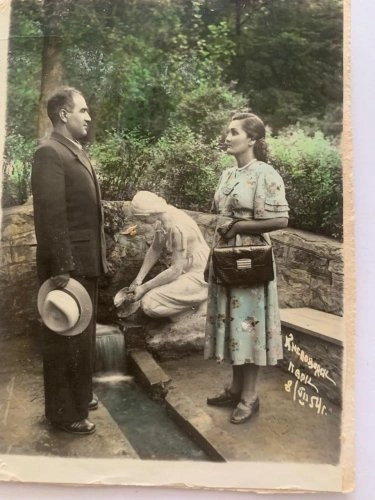
* * * * * *
From the pen of Teymur Atayev
Not only did İsfandiyar Akhundov earn the great respect of his family, but also that of society, and the thoughts written about him confirm once again that he was a person of high character. In these words flowing from the pen of renowned publicist and political scientist Teymur Atayev, the character, fighting spirit, and human values of İsfandiyar Akhundov are clearly reflected.
Teymur Atayev writes: “In May 1942, he was called up again by the military commissariat - this time to be sent to the front line. After completing a six-month course at the Tbilisi Artillery School, he, along with four others, was assigned to the military headquarters in Stary Oskol, Belgorod region, Russia. Here, the artillerymen were directed to the tank division, although they admitted: We had never been in a tank before. They were simply told: It’s okay, go to the tank training course. Being in a tank was difficult for them - İsfandiyar began to suffocate from lack of air, as he wasn’t accustomed to such conditions. After returning to headquarters, he informed them that he refused to serve in the tank division. Interestingly, he was not afraid of being threatened with being sent to the infantry. Perhaps his determination paid off: finally, they told him - Go to the artillery.”
* * * * * *
Victory living in our hearts
The war didn’t only happen in the trenches, but also within homes, in the tears of mothers, and the years when children grew up without fathers. There wasn’t a house where a photo hadn’t frozen in a corner, or a voice that didn’t echo for years. Every family lost a piece of themselves - some lost a son, some a husband, and some the joy of their lives. But as a people, we beat as one heart, we spoke the name of our homeland with every breath, and with every drop of blood, we took a step closer to victory. Every inch of this land was nourished not only by the bravery of heroes but also by the prayers of mothers and the silent gazes of children. Let us not forget… because this victory is not just history - it is the silent scream of the pain and pride that a nation carries in its heart. The war taught us that human life is invaluable. Those four years, the hunger, the losses, and the nights filled with silence remind us once again: the value of peace, family love, and mutual respect is beyond measure. The story of Zahra and a Akhundov proves that even in the hardest moments, the human spirit prevails, and love elevates a person. Remember, speak, and live it. Because memory is the most precious wealth of a generation. The respect, love, and attention you give from your heart are the bridge that passes those memories to future generations.
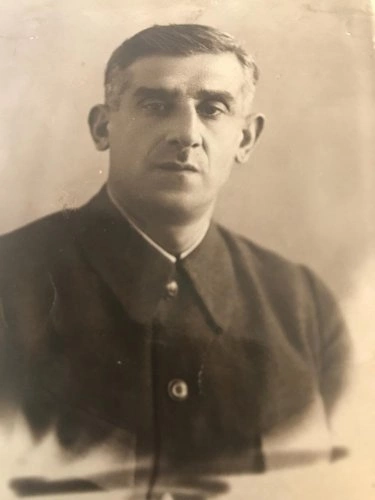
* * * * * *
A legacy from the past
The childhood laughter that began on the shores of the Caspian Sea, the roads divided by the war, the pain, and the reborn love - all of this will stay with us for a lifetime. The love of Zahra and İsfandiyar Akhundov showed that no matter how much the human heart is tested, pure love and faith can rise stronger after every blow. Their family, their memory, their values - continue to live in every tear, every smile. This family is an example for all of us: to love, respect, and remember. Even though they are no longer with us, their spirits are eternal guests in our hearts. Every time the words “I haven’t forgotten you” are spoken, every tear becomes a prayer rising to the heavens. Let us not forget that peace, love, and solidarity are our responsibility. Zahra and İsfandiyar Akhundov are always with us - in every memory we share, in every heartfelt prayer. The heavy traces of the past form the foundation of our present. As the new generation, we must never forget the heroism of both the fighters and every person who faced death. The pain they endured should not just be history for us, but must live in the deepest parts of our lives. Every year, as we commemorate this day, it is our duty to remember them and honor the value they have given us. We must never forget the bitterness of war, the pain of battle, and always pass on these memories to future generations. We remember them in our hearts with endless mercy, gratitude, and love. To forget would be a betrayal of our future. Though they have passed from this world, we are obligated to keep their memories alive. The suffering they endured is the guarantee of our freedom. Future generations must always hold this struggle and this victory in high regard. This is not only respect for the past but also our responsibility toward the future. Let us not forget that the bloody traces of the past and the glorious victories show us how valuable life is, how time is filled with both bitterness and miracles, and how precious every moment is. Amidst this pain, we must talk about what we lost, celebrate the victories, and write them into the memory of future generations with love and respect. To love deeply is to be rich: to remember is to remain alive.
Share on social media